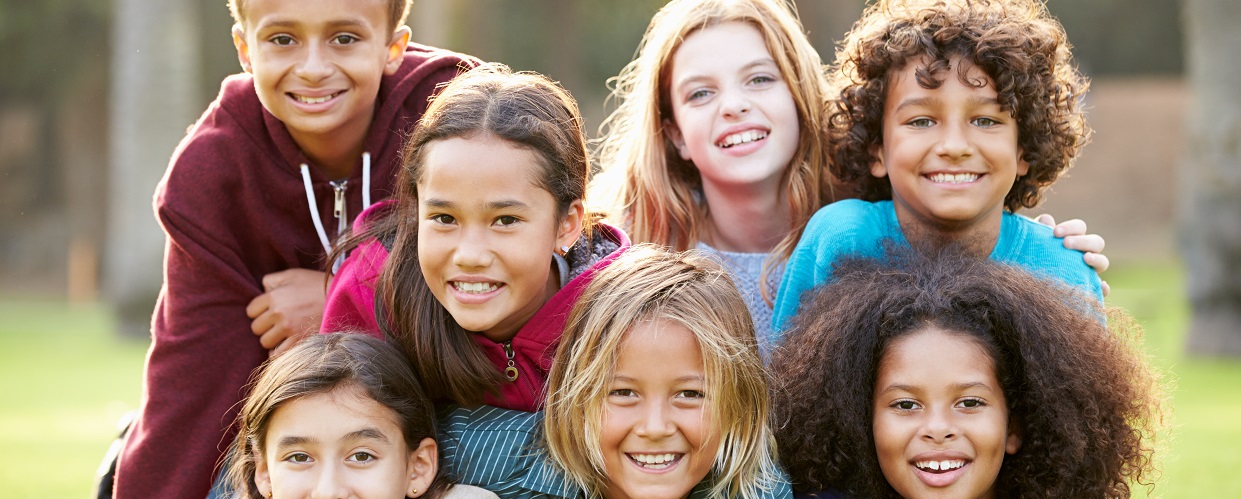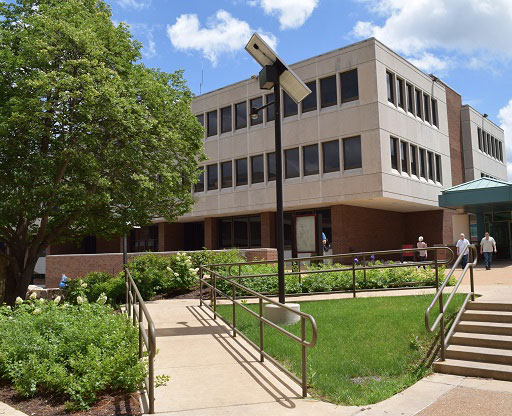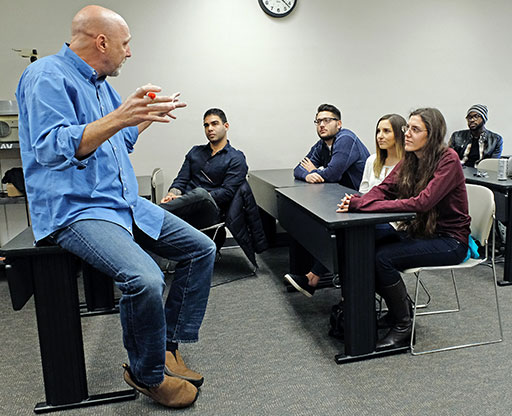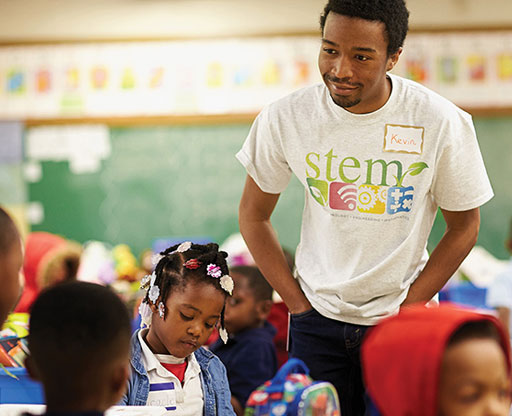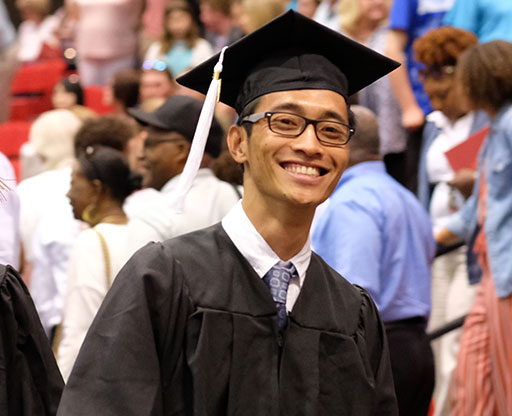Make a difference with an applied psychology degree in child advocacy.
Are you passionate about helping others, especially children? Dream of building a successful career in child advocacy? Gain the skills and knowledge you need to make a lasting difference in the lives of children with an applied psychology degree in child advocacy studies at UMSL.
Our applied psychology of children’s advocacy program is one of the first majors of its kind in the country. We’ll empower you as you learn to recognize and respond to various experiences children face, including exposure to violence, traumatic bereavement, abuse, neglect and other traumas.
When you graduate with a degree in applied psychology of child advocacy studies, you’ll be ready to hit the ground running and effect real change.
What does applied psychology and children’s advocacy entail?
At UMSL, our children’s advocacy major focuses on the applied development of skills, not just the acquisition of knowledge. This means that you will develop your skills through practice, including problem-based learning simulations and service-learning experiences.
Program type:
Major, BA
Format:
On-Campus, 100% Online
Take the next step
Request more information below:

Why earn your applied psychology degree in children’s advocacy at UMSL?
Our applied psychology degree in children’s advocacy is one of four programs nationally to achieve approval status by the Zero Abuse Project. At UMSL, you’ll have opportunities to:
- Learn from experts in children’s advocacy. Your instructors have top degrees in the field plus years of experience serving in roles such as trauma-informed therapist, forensic interviewer, child protection attorney, community grant manager and executive director of the Child Advocacy Center.
- Practice your skills in top-notch facilities. As an applied psychology and child advocacy major at UMSL, you’ll practice what you learn in our mock house simulation lab, where you’ll gather evidence and conduct interviews (with actors) for a child abuse investigation. (We also offer a virtual mock house should you take courses online.)
- Learn while doing. In addition to a variety of classroom simulations gathering evidence, making safety assessments and more, we’ll help you land internships, service-learning opportunities on the Cheyenne River Lakota Sioux reservation and more to help you develop and hone your children’s advocacy skills.
What can you do with an applied psychology degree in children’s advocacy studies?
At UMSL, our applied psychology of child advocacy studies degree program will prepare you to become a trauma-informed professional in a variety of child-serving sectors and fields, including psychology, social work, education, nursing and criminal justice. You’ll gain essential skills such as critical thinking and problem solving — and learn how to apply those skills in a variety of ways. This can help guide you to any number of career fields, depending on your interests and strengths as you complete your degree in applied psychology and children’s advocacy.
Graduates of our program go on to work in the field in a variety of settings, from nonprofit child protection services to law enforcement. Employment for social workers alone is projected to grow by 9% through 2031, adding thousands of jobs to the field each year, according to the U.S. Bureau of Labor Statistics.
Should you wish to continue your education after graduation, UMSL alumni have found success in a variety of fields, completing graduate programs in social work, counseling, school psychology, speech language pathology and law.
59,816
9
Career Opportunities
- Adoption and Foster Care
- Case Management
- Child Protection
- Child Welfare
- Early Childhood Development
- Juvenile Courts
- Law Enforcement
- Legal Advocacy
- Non-Profit Service and Administration
- Primary and Behavioral Healthcare
- Public Policy
- Victim Services
Plan of study
All majors must meet the general education requirements of the university in addition to completing degree-specific curriculum requirements.
Review Full Degree Requirements Review Sample Four-Year Plan
Non-Missouri Residents: Prospective students are responsible for reviewing the UMSL state authorizations page to see if this program is offered in their state throughout their program and to review the licensure or certification requirements for the state in which they reside.
Student organizations
Make new friends and learn new skills by joining one of our Recognized Student Organizations. Here are several opportunities you may be interested in as a psychology and child advocacy major.
- Child Advocacy Studies Club
- Psi Chi Psychology Honors Society
- Student Government Association
- Students of the University of Missouri
Honors College
The UMSL Honors College is a certificate program that can be paired with any major without adding extra classes or extending time to graduate. Classes in the Honors College are seminar-style, meaning that they are based in reading, writing, discussion, and critical thinking. This unique class format fosters an intellectual climate centered around democracy, civility and academic excellence.
Undergraduate research
We encourage and support students as they engage in exciting activities in and outside of the classroom that enrich their academic and professional understanding of their chosen area of study. All majors are encouraged to participate in Undergraduate Research and Scholarship to produce discipline-specific intellectual or creative innovations to their field.
